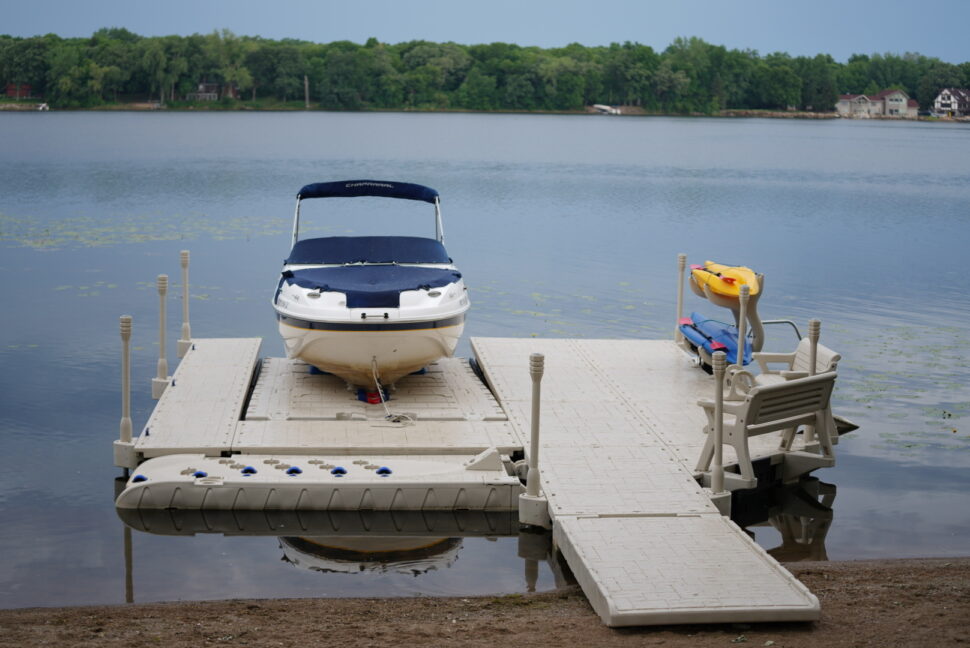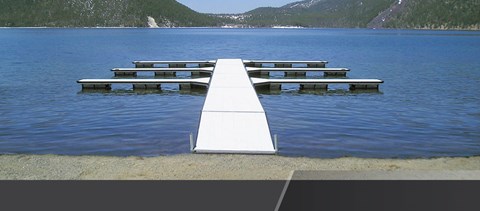Why Floating Docks Are the Perfect Remedy for Your Waterfront Needs
Floating docks existing a compelling remedy for beachfront requirements, particularly due to their versatility to changing water degrees and their durable, modular layout. As we explore the complex benefits and applications of floating docks, it comes to be evident why they stand out in the world of waterside facilities-- specifically when thinking about the lasting advantages they give for various stakeholders.
Key Benefits of Floating Docks
The adaptability of floating docks deals various advantages for beachfront applications, making them a progressively prominent option among marina operators and residential property programmers. Among the primary benefits is their flexibility to changing water levels, which enables them to remain practical in different settings, consisting of lakes, rivers, and seaside areas. Unlike conventional fixed docks, floating docks can rise and fall with the tides and seasonal adjustments, ensuring consistent accessibility.
Additionally, floating docks are commonly less complicated and less costly to keep and mount. Their modular style assists in quick assembly, reducing labor prices and building and construction time. Moreover, the products made use of in floating dock construction are commonly immune to rust, making certain long life with very little upkeep.
Security is one more crucial benefit; the buoyant nature of these docks decreases the threat of mishaps throughout disembarking and boarding, making them specifically appealing for family-oriented facilities. Their ecological impact is reduced than that of fixed frameworks, as they do not interrupt marine environments. Collectively, these benefits position floating docks as a superior option for a range of beachfront needs, straightening with both operational effectiveness and ecological factors to consider.
Ideal Applications for Numerous Tasks
Adaptability is a characteristic of floating docks, making them ideal for a variety of activities throughout various waterside setups. These versatile structures can function as ideal systems for leisure tasks such as boating, angling, and swimming. Their buoyant nature permits easy accessibility to boat, enabling smooth embarkation and disembarkation, while additionally giving a stable area for anglers to cast their lines.
In industrial settings, floating docks promote the loading and dumping of goods, accommodating both big and little vessels. They are particularly advantageous in areas with changing water levels, making sure that procedures stay undisturbed. In addition, floating docks can be made use of for beachfront eating and enjoyment, offering a one-of-a-kind and beautiful experience for customers.
Ecological applications are additionally notable; floating docks can operate as monitoring systems for wildlife enjoying or as docking terminals for research vessels taken part in environmental research studies. As marina expansions become more prevalent, these docks supply a functional remedy for boosting capability without substantial land modifications. Ultimately, the versatility of floating docks makes them a favored option for anybody seeking effective and functional beachfront options.
Design and Customization Alternatives
Floating docks not only accommodate varied activities but additionally use a range of layout and personalization options that boost their performance and aesthetic allure. These functional frameworks can be customized to fit certain beachfront requirements, whether for property, commercial, or entertainment functions.
One trick facet of personalization is the option of materials. Alternatives range from high-density polyethylene to light weight aluminum, each why not look here offering unique benefits in regards to sturdiness and maintenance. Furthermore, the configuration of the dock can be adapted to match different water degrees and environmental conditions, ensuring stability and safety and security.
Design attributes can include incorporated seats, railings, and illumination, which not just improve use but likewise boost the visual element of the dock. Custom colors and coatings permit proprietors to match the dock with existing structures or personal choices, developing a cohesive search for the waterside.
Moreover, floating docks can be designed with modular sections, allowing very easy expansion or reconfiguration as needs alter. This versatility is specifically valuable for growing households or progressing business. Generally, the considerable design and personalization choices offered make floating docks a very versatile service for any type of waterside setup.
Installation and Maintenance Factors To Consider
Commonly, effective installment and upkeep of floating docks need cautious preparation and interest to information. Prior to starting setup, it is important to analyze the details website problems, consisting of water deepness, wave activity, and local regulations. This initial evaluation informs the selection of products and style, making sure the dock will certainly hold up against ecological stress and anxieties.

Upkeep is just as essential to lengthen the lifespan of the dock. Normal evaluations should be carried out to recognize wear and tear, especially on flotation protection devices, adapters, and outdoor decking. Cleaning up the dock occasionally helps avoid the build-up of algae find out here and debris, which can endanger surface area honesty and looks.
In addition, seasonal preparations, such as eliminating devices and safeguarding the dock during extreme weather condition, can protect against damage. By prioritizing appropriate setup and routine upkeep, owners can guarantee their floating dock stays a trustworthy and useful waterside service for several years ahead.

Environmental Influence and Sustainability
The ecological influence of floating docks is a crucial consideration for waterside projects, as these frameworks engage directly with aquatic ecosystems. floating docks. Unlike typical set docks, floating docks minimize disruption to the substrate, enabling natural sediment motion and lowering disintegration. Their layout allows for water circulation under, promoting healthy marine atmospheres and sustaining regional wild animals
Lots of floating docks are created from sustainable products, such as recycled plastics and environment-friendly compounds, which minimize the carbon footprint related to manufacturing. Moreover, modern layouts incorporate functions that enhance ecological sustainability, such as absorptive surface areas that assist in water filtration and lessen pollution.
Floating docks likewise provide a perfect system for habitat reconstruction by sustaining the growth of marine greenery and offering shelter for fish and various other aquatic microorganisms. By including functions like fish environments and immersed growings, floating docks can enhance biodiversity in the area.
In addition, these frameworks can be developed to suit photovoltaic panels, providing renewable resource choices that additionally lower their ecological impact (floating docks). In general, floating docks her explanation represent a sustainable service that balances human use of watersides with the conservation of crucial ecosystems
Conclusion
In conclusion, floating docks existing a sustainable and extremely adaptable service for diverse waterfront needs. Their modular design, paired with making use of sturdy, corrosion-resistant products, makes sure durability and simplicity of maintenance. The flexibility of floating docks fits different applications, ranging from entertainment tasks to business procedures while reducing environmental impact. Inevitably, the adjustable functions and ability for expansion further strengthen floating docks as a suitable option for any type of waterfront task.
Floating docks present an engaging solution for waterfront needs, specifically due to their adaptability to rising and fall water degrees and their robust, modular style. Unlike traditional set docks, floating docks can increase and fall with the tides and seasonal modifications, guaranteeing regular accessibility.
Collectively, these advantages placement floating docks as a premium remedy for an array of waterfront demands, aligning with both operational efficiency and ecological factors to consider.
On the whole, the extensive layout and modification alternatives readily available make floating docks a highly adaptable solution for any waterfront setting.
Unlike conventional set docks, floating docks reduce interruption to the substratum, allowing for natural sediment activity and lowering erosion.